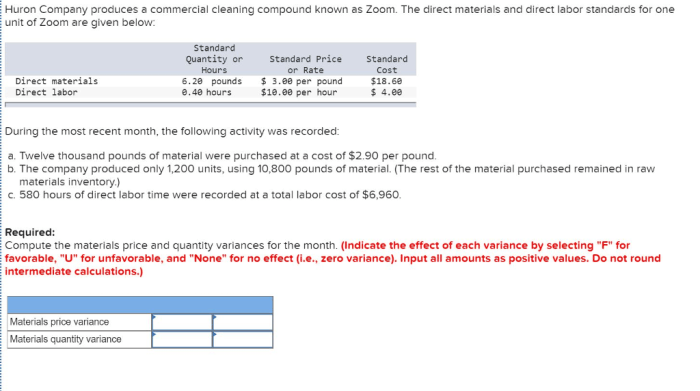Introducing the Marketing Essentials Student Activity Workbook, a comprehensive guide designed to empower students with the fundamental principles and practical applications of marketing. This workbook provides an engaging and interactive learning experience, fostering a deep understanding of key concepts and their relevance in today’s dynamic business landscape.
Through a series of interactive exercises, case studies, and real-world examples, students will explore the multifaceted world of marketing, from market research and target audience identification to marketing mix development and campaign planning. The workbook emphasizes the ethical and social responsibilities inherent in marketing, equipping students with the knowledge and skills necessary to navigate the ever-evolving marketing landscape.
Marketing Essentials Overview

Marketing is the process of creating, communicating, delivering, and exchanging offerings that have value for customers, clients, partners, and society at large.
The fundamental principles of marketing include:
- Understanding customer needs and wants
- Developing products and services that meet those needs
- Pricing products and services competitively
- Promoting products and services to reach target customers
- Delivering products and services in a way that meets customer expectations
Marketing is essential in the modern business environment because it helps businesses to:
- Increase sales and profits
- Build customer loyalty
- Create a positive brand image
- Gain a competitive advantage
Market Research and Analysis
Market research is the process of gathering, analyzing, and interpreting data about a target market.
Types of Market Research Methods, Marketing essentials student activity workbook
- Surveys
- Interviews
- Focus groups
- Observation
- Data analysis
Market research data can be used to:
- Identify customer needs and wants
- Segment the target market
- Develop new products and services
- Improve existing products and services
- Develop marketing campaigns
Target Audience Identification
A target audience is a group of people who are most likely to be interested in a particular product or service.
Identifying the target audience is important because it allows businesses to:
- Tailor their marketing messages to the specific needs of the target audience
- Choose the most effective marketing channels to reach the target audience
- Develop products and services that meet the specific needs of the target audience
Target audiences can be segmented based on a variety of factors, including:
- Demographics (age, gender, income, education, etc.)
- Psychographics (values, beliefs, attitudes, interests, etc.)
- Behavioral (purchase habits, media consumption, etc.)
Marketing Mix Development
The marketing mix is a combination of product, price, place, and promotion that a business uses to create a unique offering for its target audience.
The 4Ps of Marketing
- Product:The physical product or service that is being offered.
- Price:The amount of money that customers are willing to pay for the product or service.
- Place:The channels through which the product or service is distributed to customers.
- Promotion:The activities that are used to communicate the product or service to customers.
Developing an effective marketing mix is essential for businesses to:
- Meet the needs of the target audience
- Achieve marketing goals
- Gain a competitive advantage
Marketing Campaign Planning
A marketing campaign is a series of coordinated marketing activities that are designed to achieve a specific marketing goal.
The steps involved in planning a marketing campaign include:
- Identifying the target audience
- Setting marketing goals and objectives
- Developing the marketing mix
- Creating a marketing budget
- Implementing the marketing campaign
- Evaluating the marketing campaign
Marketing campaigns can be used to:
- Increase sales
- Build brand awareness
- Generate leads
- Improve customer loyalty
Marketing Budget and Measurement
The marketing budget is the amount of money that a business allocates to marketing activities.
The marketing budget should be based on the following factors:
- The size of the target audience
- The marketing goals and objectives
- The competitive landscape
- The available resources
The marketing budget can be allocated to a variety of marketing activities, including:
- Advertising
- Public relations
- Sales promotion
- Direct marketing
- Online marketing
It is important to measure the effectiveness of marketing activities in order to ensure that the marketing budget is being used effectively.
The key metrics used to measure marketing effectiveness include:
- Sales
- Brand awareness
- Website traffic
- Lead generation
- Customer satisfaction
Marketing Ethics and Social Responsibility: Marketing Essentials Student Activity Workbook
Marketing ethics refers to the moral principles that guide marketing practices.
Ethical marketing practices include:
- Honesty and transparency
- Fair competition
- Respect for customer privacy
- Avoiding deceptive or misleading advertising
- Protecting the environment
Social responsibility refers to the obligation of businesses to operate in a way that benefits society as a whole.
Socially responsible marketing practices include:
- Supporting charitable causes
- Promoting environmental sustainability
- Encouraging healthy lifestyles
- Respecting cultural diversity
FAQ Guide
What is the purpose of the Marketing Essentials Student Activity Workbook?
The Marketing Essentials Student Activity Workbook aims to provide students with a comprehensive understanding of marketing principles, practical applications, and ethical considerations through interactive exercises, case studies, and real-world examples.
What are the key topics covered in the workbook?
The workbook covers a wide range of marketing topics, including market research, target audience identification, marketing mix development, marketing campaign planning, marketing budget and measurement, and marketing ethics and social responsibility.
How can students benefit from using the workbook?
Students can benefit from the workbook by gaining a deeper understanding of marketing concepts, developing practical skills in marketing research and analysis, and exploring the ethical and social implications of marketing practices.

